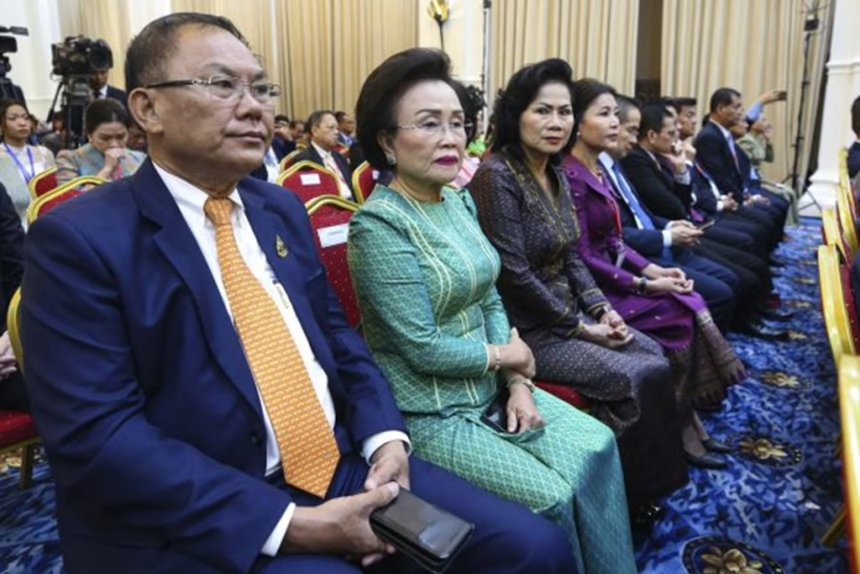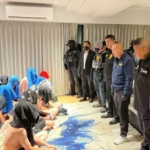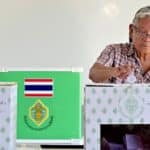BANGKOK – Thailand’s Anti-Money Laundering Office has frozen more than 350 million baht in assets, about $10.5 million US dollars, connected to Cambodian Senator Phat Supapha, widely known as Ly Yong Phat.
The announcement on Sunday signals a stronger push against transnational fraud networks that have trapped thousands in forced work and financial scams, many with links to Thailand’s banking system.
Investigators listed 11 high-value assets. These include luxury condominiums in central Bangkok, large land plots in Chonburi and Samut Prakan, and multiple bank accounts believed to hold criminal proceeds.
AMLO Secretary-General Thepsu Bawornchotdara used Section 48 of the Anti-Money Laundering Act to freeze the portfolio. He said investigators had mapped complex transfers, routed through Chinese nationals using Cambodian passports, that point back to Ly Yong Phat and close associates.
This round lifts the total seized in the case to more than 650 million baht since the probe gathered pace in 2017. Four earlier orders, worth roughly 300 million baht, have already cleared the Civil Court. Officials say those funds are being prepared for payment to 559 verified victims. The restitution process is moving ahead, with agencies working to return as much as possible to those harmed.
Cambodian Senator Sanctioned By the US Treasury
Ly Yong Phat, aged 74, is a powerful businessman of Chinese-Thai descent with long-standing interests along the Thai-Cambodian border. His L.Y.P. Group Co., Ltd. controls casinos, hotels, and infrastructure projects that changed parts of Oddar Meanchey and Koh Kong provinces.
Behind the public profile, rights groups and investigators have tied his orbit to human trafficking and online scam operations that target migrant workers.
Thailand stripped Ly of his Thai citizenship on 24 October 2025. Prime Minister Anutin Charnvirakul signed the order following pressure from AMLO and the Ministry of Foreign Affairs, citing risks to national security.
The Interior Ministry said Ly held dual nationality while aiding fraud and trafficking rings, which threatened public order. Losing citizenship removes legal shields in Thailand, opening the door to deeper asset recovery and possible extradition action.
The United States raised the stakes earlier. On 12 September 2024, the US Department of the Treasury’s Office of Foreign Assets Control sanctioned Ly, L.Y.P. Group, and the O-Smach Resort under Executive Order 13818. The designations cite serious human rights abuses tied to forced work in scam centres.
Treasury described a pattern of luring people with fake jobs, seizing passports and phones, and using electric shocks, beatings, and ransom demands. The release reported that two people jumped to their deaths from resort buildings in despair.
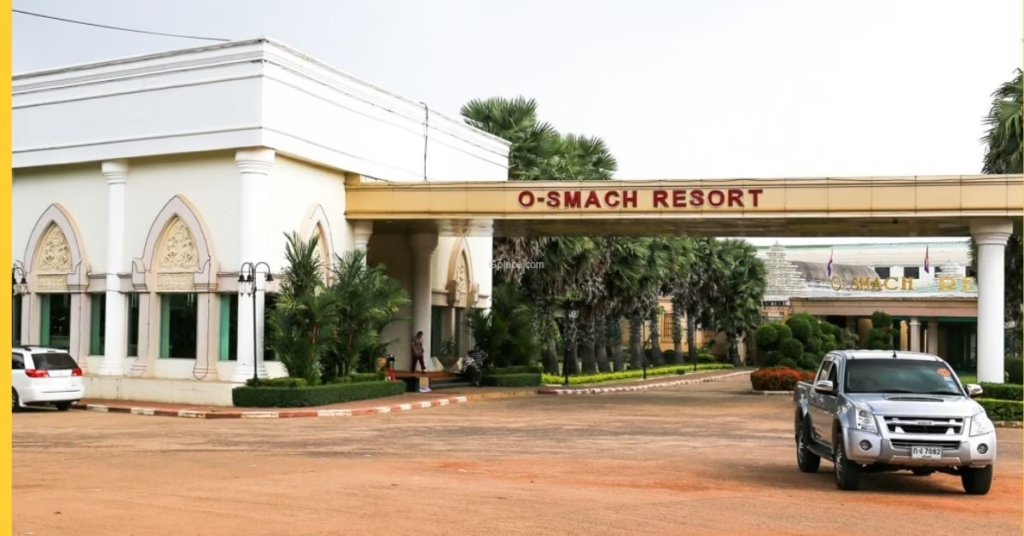
O-Smach Resort’s role and repeated raids
O-Smach Resort sits on Cambodia’s border with Thailand’s Surin province. Authorities raided the site multiple times, including in October 2022 and March 2024. Hundreds were rescued over this period, among them Chinese software workers, Indian call operators, Indonesian labourers, and Vietnamese teenagers.
The scams included so-called pig butchering, where fraudsters build trust through romance or investment ploys, then drain savings via cryptocurrency. US officials estimate losses to Americans topped 10 billion US dollars last year, with many schemes linked to border zones in Southeast Asia.
OFAC also added three Ly-controlled properties to the sanctions list. These are the Garden City Hotel in Phnom Penh, Koh Kong Resort on the coast, and the Phnom Penh Hotel in the city centre. The measures block US assets and bar transactions by American persons. Acting Under Secretary Bradley T. Smith said the Treasury would keep dismantling networks that enable trafficking and abuse.
Cambodia’s government rejected the US actions, calling the sanctions unfair and political. Officials praised Ly for work on infrastructure and poverty reduction, and the Cambodian People’s Party cast the measures as an attack on sovereignty. Even so, Cambodian authorities have cooperated in some rescues, and they maintain that ties with Washington remain stable.
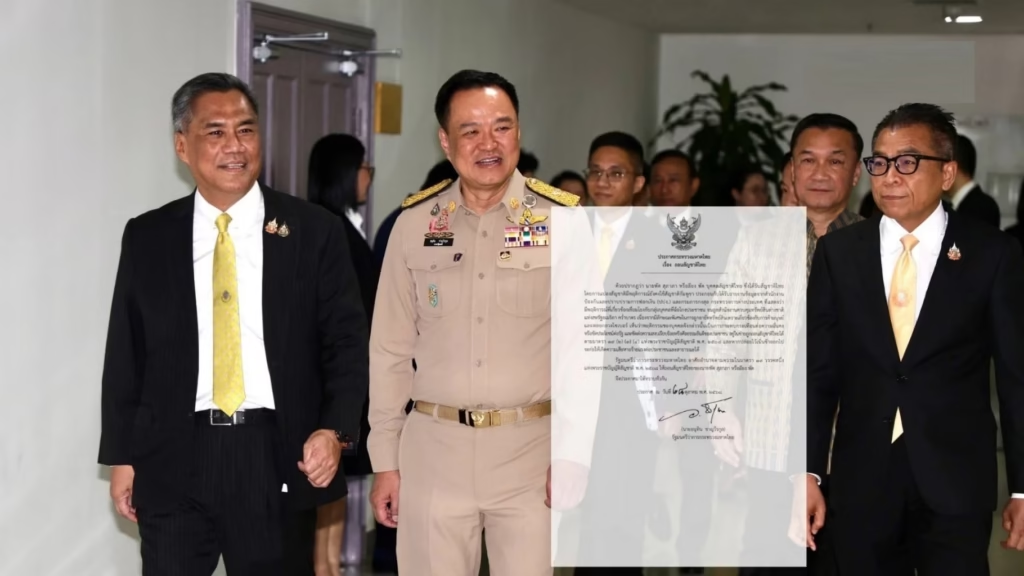
Political shockwaves inside Thailand
The case has upended Thai politics. Veteran politician Khunying Sudarat Keyuraphan warned of a 20 billion baht plot by Cambodian scam bosses to influence the 2026 elections, calling it a bid to buy clout.
Deputy Finance Minister Vorapak Tanyawong resigned on 23 October after questions about his family’s border links. Opposition MP Wiroj Lakkhanaadisorn has filed a no-confidence motion against Prime Minister Anutin, saying the interim government moved too slowly.
Scholars see a turning point. Dr Thitinan Pongsudhirak of Chulalongkorn University said the drive targets more than one figure; it warns dual nationals who enable scams through border casinos and shell firms.
AMLO’s latest raids follow July 2025 operations that seized 1.1 billion baht across 19 properties tied to similar rings. Thai police are working with Interpol and ASEAN partners on dozens of fresh leads, including groups smuggling South Korean victims through remote crossings.
For survivors, asset freezes help but do not erase trauma. Nguyen Thi Lan, a 28-year-old from Vietnam, was rescued in 2023 after months of 18-hour shifts selling fake crypto investments.
She said she paid 15,000 US dollars in ransom to escape. She described beatings for missed targets and said guards boasted about protection linked to Ly. Her account mirrors hundreds of others, with families left in debt and communities shaken by suicides.
AMLO is tracing flows across seized accounts and deeds, and is preparing more petitions to the Civil Court. Prosecutors are weighing criminal charges. Extradition options are on the table now that Thai citizenship has been revoked. The broader question is whether sanctions and seizures will reduce the scam trade or push it into new locations with weaker oversight.
Thailand has shifted from caution to action. By revoking Ly’s citizenship and freezing high-value assets, Bangkok has drawn a clear line. The space for traffickers and their backers is shrinking, and the push to return stolen money to victims is gaining ground.




